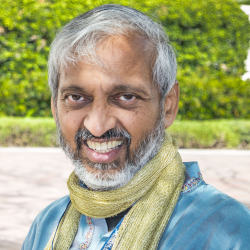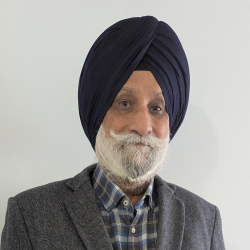
Compassionate Speech: Anekāntavāda as an Antidote to Polarization

Dr. Jeffery D. Long is the Carl W. Zeigler Professor of Religion, Philosophy, and Asian Studies at Elizabethtown College, in Elizabethtown, Pennsylvania, where he has taught since receiving his PhD from the University of Chicago Divinity School in the year 2000. He is the author, editor, or co-editor of twelve books, including Hinduism in America: A Convergence of Worlds, which won the Rajinder and Jyoti Gandhi Award for Excellence in Theology, Philosophy, and Critical Reflection from the Dharma Academy of North America in 2022. His latest book is Discovering Indian Philosophy: An Introduction to Hindu, Jain, and Buddhist Thought. His work focuses primarily on the religions and philosophies of India, mainly the Hindu, Jain, and Buddhist traditions, and on such themes as nonviolence, pluralism and its metaphysical foundations, the pedagogy of teaching Indic traditions in a Western context, religion and popular culture, and the concept of rebirth. In 2021, he received an award from the International Ahimsa Foundation for his efforts to promote nonviolence through scholarship. In the same year, he received the Ranck Award for Research Excellence from Elizabethtown College. He has spoken three times at the United Nations and appears in documentaries for PBS and the History Channel.
Related Courses

2014 | Jain Teachings & Practices of Compassion
$99.00 USD
2014 | Jain Teachings & Practices of Compassion
$99.00 USD
Instructor
Enrollment Options
14-DAY FREE TRIAL
- Free, unlimited access to our self-paced courses for 14-days.
- Already used your free trial? Enroll in our Monthly or Annual Membership options at anytime and continue learning immediately!
MONTHLY MEMBERSHIP
- $45 USD / Month
-
Immediate access to course
#### | Name. - Unlimited access to our live and self-paced courses for one month, with month-to-month auto rollover.
- Excludes graduate seminars, language courses, and courses hosted on partner platforms.

 Jeffery Long, PhD
Jeffery Long, PhD






